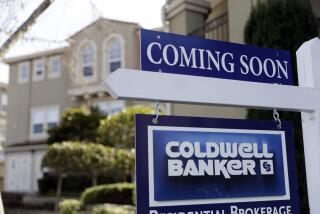Homeowners fall behind on HOA dues, get little help from board
- Share via
Question: My husband and I lost our jobs and have enough challenges staying current with our monthly mortgage payments, but we’re three months behind in our homeowner association dues. We’ve already received one notice from the board stating we must stay current or be subject to fees and a lien being placed on our house.
I want to know if there is anything we can do to ensure we’re not unreasonably fined or penalized, or are subject to other things that the HOA board may impose against us, like a lien or foreclosure. The board seems unwilling to meet with us. It is as if they’re just biding their time before taking our home. What do we do?
Answer: There are two types of foreclosure typically used in common interest developments with homeowner associations, judicial and nonjudicial. The type of foreclosure most often used by associations is nonjudicial, meaning court is avoided.
Every year, association boards are required by Civil Code Section 1365.1 to distribute to all owners a notice containing the legal parameters for enforcing its rights to collection against its titleholders. Any questions regarding details pertaining to collections and the association’s policies should be addressed directly to the board of directors.
At least 30 days prior to recording a lien on an owner’s separate interest, the association must provide the owner of record with certain documents by certified mail, including a description of its collection and lien enforcement procedures and the method of calculating the amount due.
Pursuant to Civil Code Section 1367.1, the association must also provide an itemized statement of the charges owed by the titleholder including any attorneys’ fees, interest or other costs. Any titleholder has the right to review the association’s records to verify the debt and can accomplish that by making a demand directly to the board to view the books and records.
If you are unsuccessful in reviewing those documents and getting the records you need to verify the debt and its accuracy, write a letter to the board requesting to engage in the homeowner association’s Internal Dispute Resolution program that all associations should have in place.
An owner may dispute fees, fines, liens, penalties, assessments and any assessment debts by submitting a written request for dispute resolution to the board as set forth in Civil Code Section 1368.810.
In addition, an association may not initiate a foreclosure without first participating in some form of alternative dispute resolution with a neutral third party as set forth in Civil Code Section 1369.510, if so requested by the owner. If the owner fails to request alternative dispute resolution, it will be deemed waived and the association can proceed. Binding arbitration shall not be available if the association intends to initiate a judicial foreclosure.
Also, make every effort to meet directly with the board in an attempt to resolve the payment deficiency, enter into a payment plan, even agree to pay a smaller amount until your personal financial situation changes. All demands to meet must be made in writing. Entering into a payment plan of any type might prevent foreclosure as long as you are able to keep up with the promised payments.
If the association does not follow procedures outlined in the Davis-Stirling Act, steps that it might otherwise be able to take are made impermissible by that initial failure. An association’s failure to meet with you when requested could be used to stop foreclosure.
The late Stephen Glassman, an attorney specializing in corporate and business law, co-wrote this column. Vanitzian is an arbitrator and mediator. Send questions to P.O. Box 10490, Marina del Rey, CA 90295 or noexit@mindspring.com.
More to Read
Inside the business of entertainment
The Wide Shot brings you news, analysis and insights on everything from streaming wars to production — and what it all means for the future.
You may occasionally receive promotional content from the Los Angeles Times.









